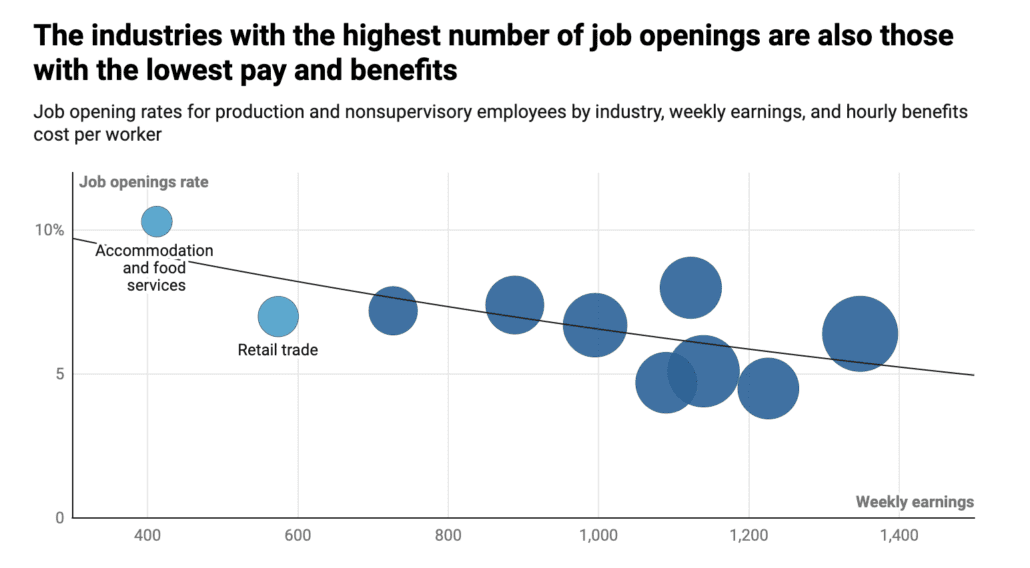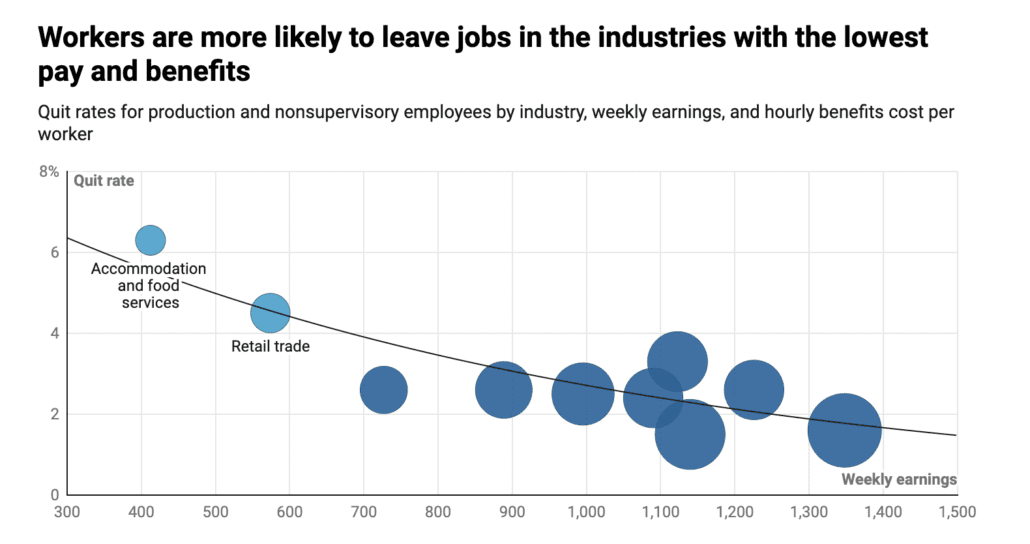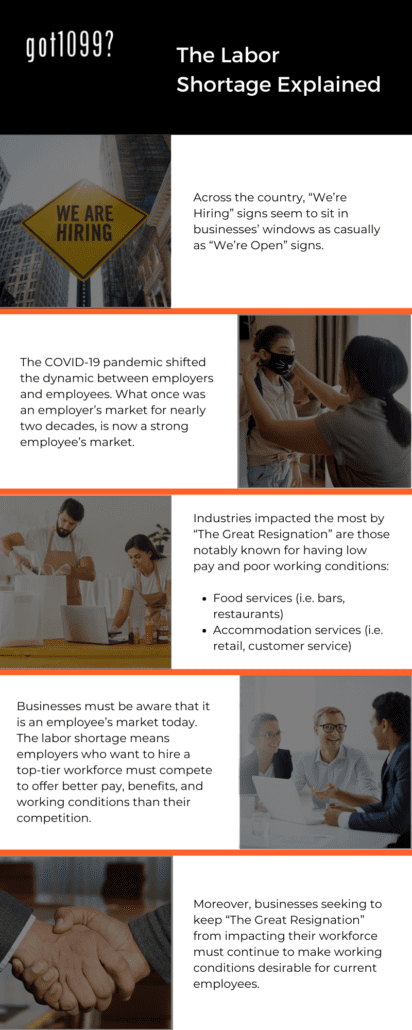Across the country, “We’re Hiring” signs seem to sit in businesses’ windows as casually as “We’re Open” signs. The phenomenon of experiencing a labor shortage during a global pandemic has prompted economists to search further into why, during unprecedented times, are people quitting their jobs? Let’s discuss why there’s a workforce shortage, and what it means for businesses in our article: “The Labor Shortage Explained.”
Why is There a Labor Shortage?
The labor shortage can be explained by a combination of factors that merged together, making the perfect storm for business owners to be hiring.
To start, the COVID-19 pandemic shifted the dynamic between employers and employees. What once was an employer’s market for nearly two decades, is now a strong employee’s market.
Workers are switching jobs, and industries even, to find better:
- Working conditions
- Compensation
- Benefits
Additionally, employees are leaving jobs that don’t prioritize the importance of physical or mental health.
American Progress explains: “The pandemic has shifted the power dynamic between employers and employees, creating the tightest labor market the United States has seen in at least 20 years.”
Other factors that contribute to the labor shortage include:
- Households have saved up enough money that they are not urgently returning to the workforce
- High volumes of older workers are retiring early
- People are less eager to return to office life and daily commutes
- Surging equity markets for businesses to offer attractive compensation packages
- Border closures reducing immigration rates and slow birth rates limit younger workers in the workforce
- There is a higher demand for jobs that offer flexibility
- More employees are seeking self-employment opportunities
- High levels of stress and burnout mixed with more workers questioning if they are happy at their jobs
- Limited access to childcare
All of these elements combined have led to what businesses are now coining “The Great Resignation.”
In the United States alone, the nation is facing an alarmingly high volume of resignation. In fact, research shows that “4.4 million workers, or 3 percent of the total workforce, quit [their jobs] in September 2021.”
Industries impacted the most by “The Great Resignation” are those notably known for having low pay and poor working conditions. For example:
- Food services (i.e. bars, restaurants)
- Accommodation services (i.e. retail, customer service)
Reporting from Deloitte shows that employment rates are 2.1 million below pre-pandemic levels in February 2020.
Moreover, the following graphs by American Progress show a visual representation of how the accommodation and food services industries have the highest number of job openings, but also the lowest pay and benefits. In turn, this has led to a higher likelihood of employees leaving industries with low pay and benefits.


What Does the Labor Shortage Mean for Businesses?
Local and global labor shortages are stifling economic growth—causing service shortages for consumers.
CNBC reports that “there are more than ten million job vacancies right now spread across all sectors with a record proportion of companies raising pay to try to attract staff… It is a problem with the supply of workers, which is both holding back output and increasing inflation pressures in the economy.”
Businesses must be aware that it is an employee’s market today. The labor shortage means employers who want to hire a top-tier workforce must compete to offer better pay, benefits, and working conditions than their competition.
Moreover, businesses seeking to keep “The Great Resignation” from impacting their workforce must continue to make working conditions desirable for current employees.
Looking to hire an independent contractor? Read on for our article on how to hire an independent contractor.

LOCATION
La Jolla, CA 92037
o: (888) got-1099 (468-1099)
e: contact@got1099.com
copyright got1099®
copyright got1099?®
copyright Start1099®
GET AB-5 And CASLB Updates in your inbox
IMPORTANT INFO
Disclaimer
got1099 is a business reporting company providing business analysis reports to companies re: their 1099 independent contractors We do not provide legal advice. Consult with your attorney relating to any legal issues.


